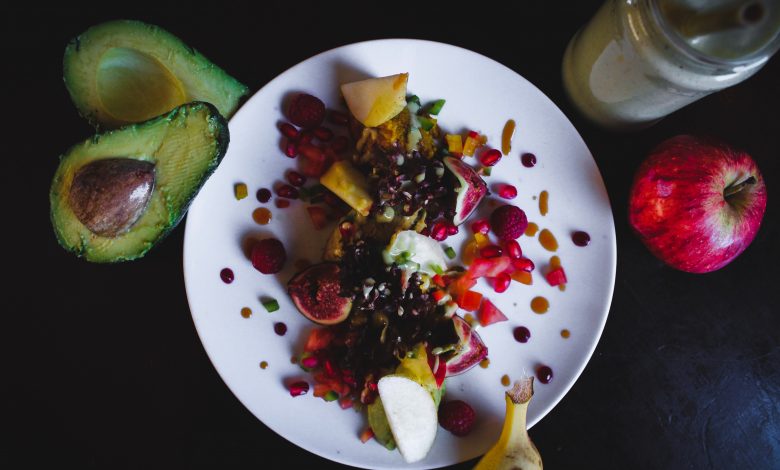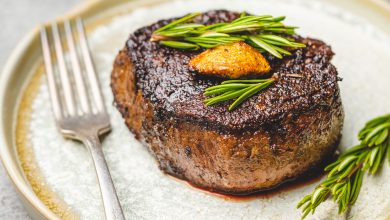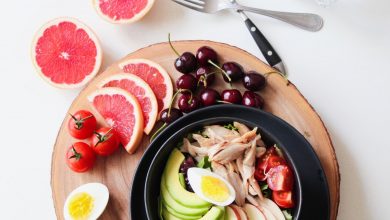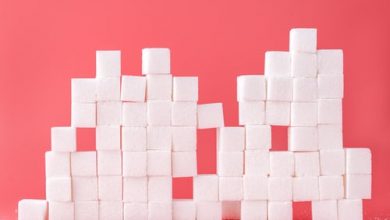
Is a Vegan Diet Good For Weight Loss?
It’s hard to resist any vegan diet when you see everyone posting with their amazing bodies and post-workout vegan smoothies. It’s no doubt that the vegan diet has taken the fitness community by storm, even tempting celebrities like Beyonce and Carrie Underwood. But is it as good as everyone says it is?
More importantly, does it help with weight loss?
What is a Vegan Diet?
Veganism or being a vegan is not only a diet, but it is considered a lifestyle. It is an eating plan to completely exclude all types of meat, eggs, dairy products, or other animal products. Many people go into veganism for different reasons – it can be societal, environmental, or health reasons.
The word vegan itself is what we call people who participate in this diet. It is also used as an adjective when describing food that adheres to this diet.
“But what about vegetarians?” one might ask. “How do they differ from vegans?”
There is a fine line between vegans and vegetarians, and that line is often an environmental one. Vegetarians are people who are fond of including large portions of fruits and vegetables into their diets. Still, they don’t necessarily exclude eggs or milk. Vegans, on the other hand, believe that to contribute to the community and fight for animals’ rights, they must eliminate all animal and animal by-products from their diets.
A vegan’s lifestyle believes in a world free of animal cruelty. Depending on the person’s dedication, veganism can extend up to the point of not using certain products if it has been tested on animals. Aside from food, they also avoid animal products like leather, fur, and wool.
However, both veganism and vegetarianism are healthy and contribute one way or another to our society and to ourselves.
Now that we know what a vegan diet is, let’s talk about how it works.
How Does a Vegan Diet Work?
There are many ways to adopt a vegan lifestyle, but it’s also true that the transition is difficult. Many people opt to go vegetarian for a while, slowly omitting eggs and dairy from their meals. Some dieters choose to cut on their meat instead, while others may change their lifestyle overnight.
Changing from a meat-based meal plan to a plant-based meal plan overnight is exceptionally challenging. First of all, your body has been used to eating meat all these years, and this will come off as a shock. Nevertheless, we’re not saying that the transition is impossible.
There are also many variants to the vegan diet. Here are a few examples of vegan diets:
Whole-Food Vegan Diet
A whole-food vegan diet is composed of a broad category of foods, including whole grains, fruits, and vegetables.
Raw-Food Vegan Diet
A raw food vegan diet focuses on eating vegetables, seeds, fruits, nuts, or other plant-based foods.
The Starch Solution
The Starch Solution is another variant of the vegan diet that’s composed of consuming a low-fat and high-carb eating plan, like mostly eating starches such as potatoes and rice instead of fruit.
The Thrive Diet
The Thrive diet is a more extreme version of the raw-food vegan diet, with the dieter consuming whole foods that are raw or minimally cooked at low temperatures.
Typical Vegan Foods
Typically a vegan diet will consist of the following food:
- Vegetables
- Fruits
- Grains (rice, pasta quinoa, etc.)
- Legumes (beans, lentils, etc.)
- Nuts
- Seeds
- Nutritional yeast
- All non-dairy kinds of milk (almond, coconut, etc.)
- Tofu
- Tempeh
- Seitan
- All plant-based sugars
On the other hand, here is a list of foods that are not allowed on a vegan diet:
- Meat (beef, pork, lamb, etc.)
- Poultry
- Seafood
- All animal products (milk, cheese, yogurt, etc.)
- Eggs
- Honey
- Gelatin
- Casein (often found in soy cheese)
- Lactose
- Lanolin
- Whey
With a vegan diet, people have been led to believe it is the best way to lose weight. And why not? You ditch the junk food, any unhealthy fats, and calorie-filled meats, so it’s bound to happen, right? Let’s take a look at what happens between a vegan diet and weight loss.

Vegan Diets and Weight Loss
There are mixed reviews when it comes to the relationship between vegan diets and weight loss. While there’s no denying that a vegan diet is beneficial to our bodies, there’s some speculation whether it really does directly affect our weight.
Higher in Fiber Content
To stimulate weight loss and an overall better bowel movement, the intake of high-fiber ingredients is critical. This is because fiber is slowly absorbed into our bodies, thereby helping us feel full for a more extended period and preventing us from snacking later on. Fiber also keeps our cholesterol at a safe level and even has anti-inflammatory properties.
Because vegans live on a plant-based diet, they eat more fiber content than meat-based eaters. A 1985 study compared vegans, vegetarians, and omnivores. The research concluded that vegans ate more fiber among the three groups at an average of 24 grams more per day. Another study also found that vegans had better bowel movements, suggesting that they have healthier digestive systems that maintain or encourage their weight loss.
Vegan Junk Food Exists
Contrary to popular belief, vegan is not always healthy. In fact, there are tons of vegan junk foods or processed vegan food in supermarkets. This can lead people to live a junk food vegan lifestyle.
Ideally, to encourage weight loss in a vegan diet, one must consume whole foods, whole grains, legumes, and seeds for their calorie intake. However, it doesn’t always seem that way when there are vegan versions of your favorite snacks, such as the Impossible Burger. This means it’s possible to go through a day without eating a single vegetable, which will eventually lead to weight gain.
Low in Saturated Fat
Another excellent characteristic of vegan diets that contribute to weight loss is their low levels of saturated fat. Saturated fat is considered to be one of the unhealthy kinds of fat that mostly comes from animal products. Because we cut off our meat consumption in vegan diets, that alone can reduce our fat intake by a lot.
Vegan diets also focus on whole foods that emphasize on heart-healthy unsaturated fats and “good” carbs. This allows our body to absorb more fiber, antioxidants, and minerals. Reducing your saturated fat intake can also lower your risk of diabetes, obesity, and cancer.
Too High in Healthy Fats
Unfortunately, not every food that is healthy can be useful for your body, especially when taken in large amounts. For example, some of the healthiest ingredients in vegan diets, such as avocados, nuts, and seeds, have very high-calorie values. When you consume too much of these foods, it can lead to gradual weight gain, the opposite of your desired results.
It’s important to remember that too much plant-based saturated fat is just as bad as too much animal-based saturated fats.
Less Calories
A vegan diet will naturally help you lose more weight because you will be consuming fewer calories. Vegetables and fruits have fewer calories when compared to animal products. Also, foods like leafy greens and whole grains can be just as filling without having too much fat.
When you consume lower calories with more protein and fiber content, this will easily encourage you to slim down. Being on a vegan diet will force you into a healthy lifestyle rich in vitamins and minerals.
May Not Provide Enough Nutrients
Before adapting to a vegan lifestyle, it’s essential to visit your dietician first to make sure that your body is getting all the nutrients that it needs. This is because a vegan diet can be overly restrictive.
Most vegans take additional supplements to fulfill their nutritional needs. You will likely need to take a vitamin B12 and vitamin D supplement. It’s also important to curate your vegan diet in a way that ensures that you are consuming your daily need of iron, calcium, and omega-3 fats.
Provides More Energy
Carbohydrates are the fuel that runs our bodies. Eating a vegan diet that is rich in its plant-based meals will give you more energy. This is because plants like grains, nuts, and seeds provide more carbs for our bodies to use. Our bodies also take longer to process plant products than animal products, so this gives us more fuel to burn throughout the day.
Protein-Deficiency is a Risk
One of the biggest arguments against the vegan diet is its lack of protein. This is not to say that plants don’t have protein, but our bodies usually source this nutrient the most from eating meat and eggs. Protein is an essential part of weight loss, as it keeps us full and helps build muscles.
For vegans, they compensate this lack of protein by eating protein-filled plants, such as whole grains and legumes. To keep healthy and fit, we recommend following the suggested daily intake of protein. For the average person, your proteins should consume 10 to 35 percent of your total calorie intake.
Lower BMIs
Another piece of evidence that links veganism with weight loss is the fact that vegans weigh less than other groups on average. If we look at a 2013 study from Loma Linda University, we can conclude that, on average, vegans had a 4.7 percent lower BMI than people who ate meat-based foods. This is because both groups consumed the same amount of calories.
The results are understandable since a vegan diet promotes healthier digestion, more fiber, and less unhealthy fats. Thus it would make complete sense as to why vegans would weigh less.
Just Eating a Vegan Diet Isn’t Enough
Unfortunately, if you want to lose weight, going on a vegan diet isn’t enough. Many factors should be considered when it comes to the process of slimming down. Even when you go vegan, it’s still essential to maintain an active lifestyle.
Drinking too much alcohol, smoking, and binge-eating on vegan foods can all contribute to weight gain instead of weight loss. Sleep also plays a significant factor in overall health. So it doesn’t matter if you’re on a vegan diet; you still need to keep your healthy habits to lose weight.
As you can see, there is a lot of debate when talking about vegan diets and their effect on weight loss. While it does help people with gradual slimming down, it doesn’t come without a few disadvantages. These disadvantages are what urge people to think about if the extra pounds lost are really worth it.

The Pros And Cons of a Vegan Diet
There is no question that the vegan diet has many advantages when it comes to promoting an overall better lifestyle. However, this diet comes with a catch.
Cons
Let’s talk about the bad news first.
You can have nutrient deficiencies.
The biggest con of a vegan diet is that there’s a high risk to have nutrient deficiencies. While it’s entirely possible to get all your body’s nutrients from a plant-based diet, some people don’t pay much attention to what they eat. This leads to them eating unbalanced vegan meals, which then leads to nutrient deficiency.
It can be challenging to eat out.
Being a vegan can be challenging to eat at restaurants or at other people’s homes. Some places don’t offer vegan options, so this can cause some complications. It also doesn’t help that there is a negative stereotype against vegans, which makes it even harder for them to air out their concerns when presented with non-vegan food.
You might experience setbacks.
While going through a vegan diet, mainly if you’re not accustomed to it, prepare to experience some setbacks. You may crave the meat or sugar that you used to eat before, and that’s perfectly normal. Resisting it is the tricky part, but don’t worry, as you can always replace these foods with a vegan-approved version.
It’s a difficult transition.
There’s no denying that transitioning into a vegan diet after years of a meat-based diet is incredibly difficult. You will need to spend the extra time to research the foods that your body needs daily. You also need to be extra mindful when it comes to picking out ingredients that may contain animal products, and this process can be exhausting and draining.
Pros
Now on to the good parts of being a vegan!
It can help you lose weight.
There is no guarantee that a vegan diet is the best way to lose weight, but it does help tremendously. It will help you to eat healthily and even encourage you to eat more without worrying about the extra calories. For example, you can be as full of eating three cups of veggies as one cup of meat and still consume fewer calories than the meat-based meal!
It lowers your cholesterol.
Another great benefit of a vegan diet is that it lowers your cholesterol levels. Since most bad cholesterol comes from overeating meat, going on a vegan diet forces you to consume vegetables and fruits instead. This automatically cuts your calorie intake by a lot!
It also lowers your blood pressure.
A vegan diet is also recommended for people with high blood pressure. High blood pressure comes with the overeating of animal products and fatty foods. Having a plant-based diet will encourage your body to focus on fiber and carbs instead, which can lead to a healthier level of blood pressure.
It increases the antioxidants, fiber, vitamins, and minerals in your body.
Another thing we need to mention is that fruits, vegetables, and whole grains are packed with antioxidants, vitamins, and minerals that can’t be found in animal products. The best part of the vegan diet is the fiber that it provides. This gives you more energy to burn throughout the whole day without you ever having to worry about the extra calories.
It’s a less expensive lifestyle.
This may come as a surprise, but a vegan diet isn’t actually an expensive lifestyle. Grains, legumes, and fruits tend to cost less than cuts of meat. Many people find that they save more of their money after adopting a vegan lifestyle.

Does a Vegan Diet Help with Weight Loss?
Going on a vegan diet will encourage you to eat healthier and choose wiser when it comes to picking out the ingredients for your meals. You will be introduced to an eating plan with fewer calories but more nutrition and fiber to fuel you throughout the day. Whether you’re going vegan for the sake of the environment or your health, a vegan diet will definitely help you lose the extra pounds.
But is a vegan diet good for weight loss?
Maybe.
The thing is, going on a vegan diet does have its setbacks. For one thing, it’s a very restrictive eating plan that will force you to eliminate a whole food group from your daily consumption. There is also the risk of not getting enough vitamins that your body needs that usually comes from animal products. Most of all, a vegan diet is not for everybody.
If you feel that a vegan diet is a right path for you, we recommend easing into it slowly. Your body has been used to eating meat for years, so it’s best to eliminate one particular food at a time. We also recommend visiting your doctor or dietician for professional advice.



